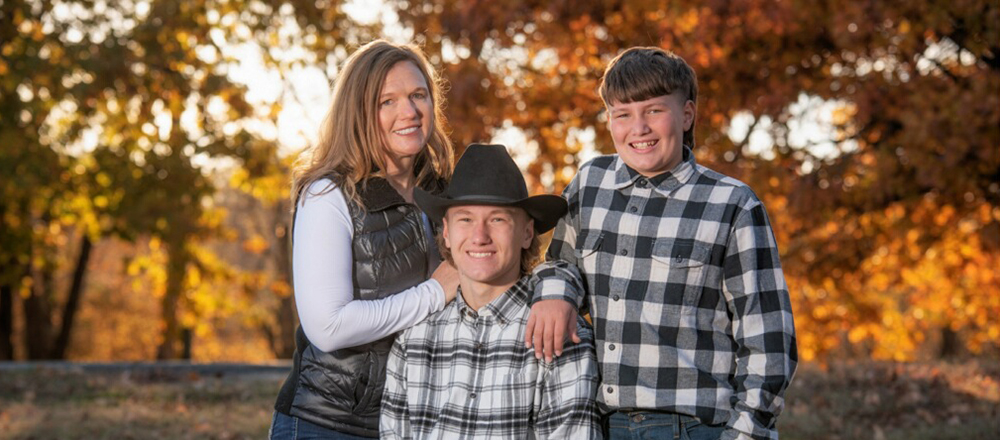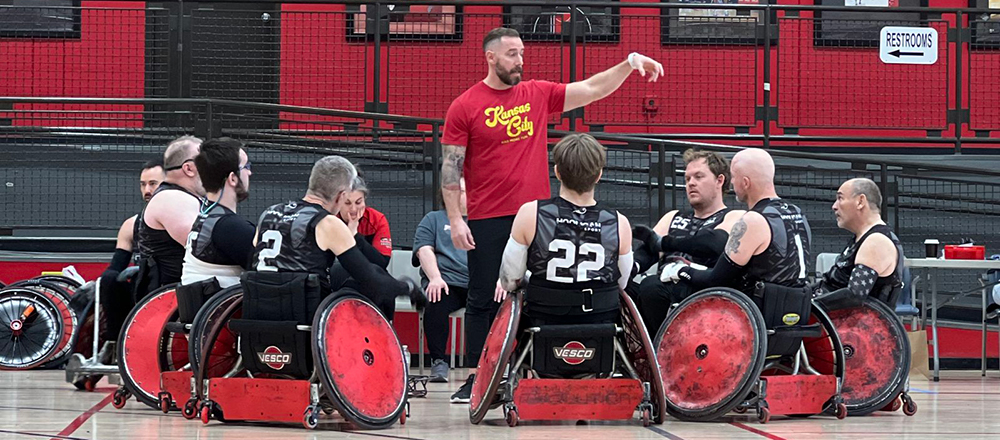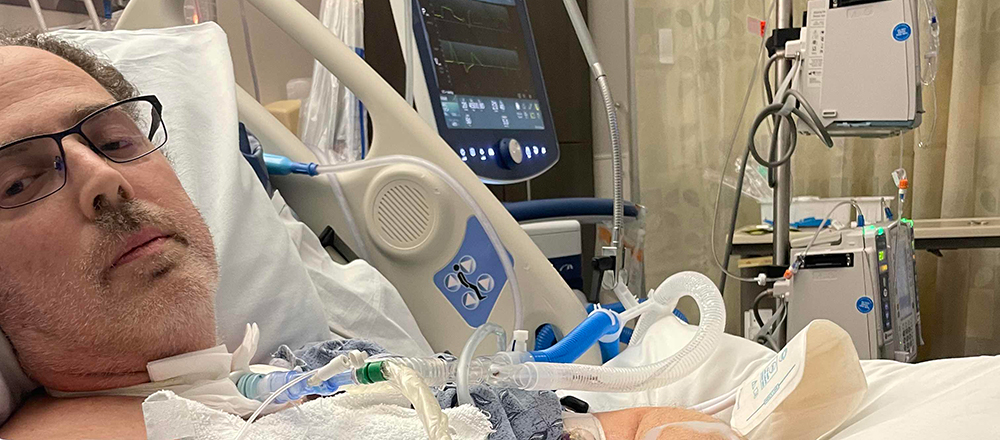
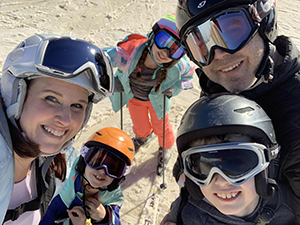
Benyamine Mizrahi, MD, colon and rectal surgeon, has been part of the North Kansas City Hospital system since 2010. His passion for colorectal surgery and making a difference in people’s lives have come to define him outside of his love for his family. He had always been a healthy guy. He took all the necessary precautions throughout the COVID-19 pandemic, including getting vaccinated, social distancing and wearing masks, to stay safe and healthy. But when he tested positive for COVID-19 following his annual family ski trip, his life completely changed.
As he and his family returned from Colorado in January of 2022, Dr. Mizrahi began feeling very fatigued and winded, and it only got worse. They stopped at a health clinic in a small Kansas town, where a rapid test confirmed his symptoms were coronavirus. Worrying about returning to work and wanting to get better, they made a second trip to a medical center. During this stop, he underwent a monoclonal antibody infusion, where man-made proteins that act like antibodies to help the immune system fight off illnesses and infections get injected and cycled through his system.
However, after returning home, Dr. Mizrahi’s condition worsened, and it became harder for him to breathe. He went to an emergency room, thinking he would get checked out, receive prescriptions and go home. Instead, he was admitted.
Uncertainty
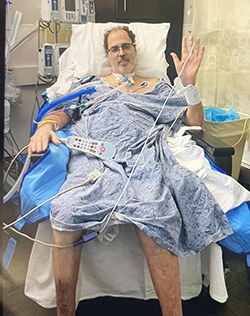 Two days after being admitted, Dr. Mizrahi’s breathing became so labored he needed intubation, which is when a tube is put into the trachea to keep it open and allow airflow. The tube is then connected to a ventilator to manually blow oxygen into the lungs.
Two days after being admitted, Dr. Mizrahi’s breathing became so labored he needed intubation, which is when a tube is put into the trachea to keep it open and allow airflow. The tube is then connected to a ventilator to manually blow oxygen into the lungs.
“I thought if I got intubated, I would die,” he said. “I fought it until I needed it. I called my wife and kids and told them ‘This could be it. I love you.’”
Along with being intubated, Dr. Mizrahi was put into an induced coma so his body could accept the medical treatment and recover. He was in a coma for more than five weeks. During that time, his body was unstable and struggling. His blood pressure fluctuated; he was on 100% oxygen from the ventilator; his catheters clotted several times; he couldn’t tolerate the feeding tube; and his kidneys shut down for a short time.
His care team, family and friends were unsure if he would make it through. His community of friends and neighbors came together to provide meals and send positive messages to him and his family during his time in the hospital. After three months on the ventilator and 100 days in the ICU, his body stabilized enough for him to leave the hospital to start rehabilitation. He went to Madonna Rehabilitation Hospital in Lincoln, NE. This hospital specializes in rehabilitating patients who have suffered complex medical issues or traumatic medical events.
Uphill Battle
When Dr. Mizrahi first arrived at Madonna, he needed help sitting up and could barely walk without his oxygen levels dropping. Although the staff believed he needed to be there for 10 weeks before he could return home, he was determined to get better sooner and pushed himself as much as he could. After four weeks and a day, Dr. Mizrahi went home. He was still in a wheelchair, used a walker occasionally and needed five liters of oxygen a day.
He began intensive outpatient therapy to regain his independence and daily routines. Five days a week for 10 weeks, he endured six hours of physical, occupational and speech therapy to regain strength and important functions he lost while in the hospital. On his first day, he went through initial testing with a four-minute walk. He made it 300 steps with his walker and oxygen in tow before his therapist stopped him because of how much he was struggling. About six weeks later he was retested on the walk. In four minutes, he walked more than 2,000 steps.
“I knew I was getting stronger as the weeks went by,” Dr. Mizrahi said. “I was always pushing myself to the next level that I became extremely drained afterward. I couldn’t even make it home from therapy without falling asleep in the car.”
During outpatient rehab, he also attended psychologist-led group meetings every day. At the beginning of the 10 weeks, he went to the meetings in a wheelchair and struggled to participate. He eventually was walking to therapy, inspiring and encouraging everyone to keep pushing through their hardships.
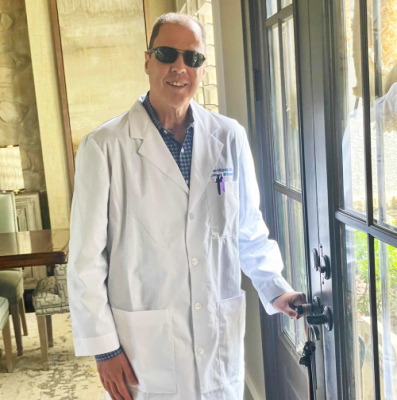 New Outlook
New Outlook
After eight months away from work, Dr. Mizrahi started seeing patients. While he was eager to jump back into everything, he knew it was best to take it slow. Over four months, he saw more patients, attended committee meetings, went through credentialing, assisted his practice partner and, finally, started to operate again. He has been back full time working with and operating on patients since January of 2023. His time fighting for his life changed the way he looked at many things, including his patients.
“I used to see everything in black and white, and now it’s in color,” he said. “I’ve become more empathetic for my patients. I’ve never been sick before in my life, so I feel for them since I’ve been in their situation. I see where they’re coming from. Not many people get second chances, but there’s a reason I’m still here. I’m going to spend the rest of my life figuring it out.”
Explore More
What You Need to Know About the Flu and COVID-19
Harrowing COVID-19 Battle Gives KC Legend New Lease on Life

